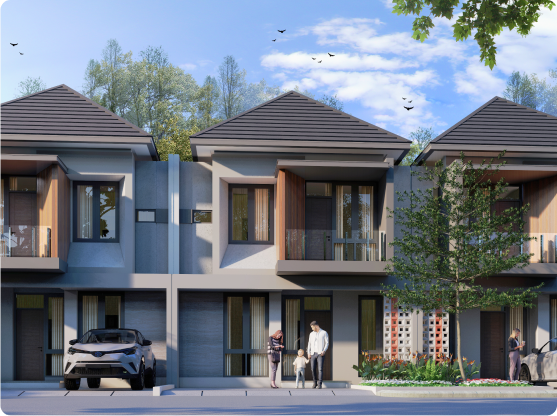- Beyond the Coastline: Key ghana news Updates on Politics, Economy, and Culture
- Political Landscape: Recent Shifts and Stability
- Constitutional Amendments and Their Impact
- Regional Security Concerns and Ghana’s Role
- Economic Performance: Growth, Challenges and Outlook
- Debt Management and Fiscal Consolidation
- Diversification and the Role of Agriculture
- Cultural Landscape: Traditions, Arts, and Innovation
- Preserving Traditional Arts and Crafts
- The Rise of Contemporary Ghanaian Music and Film
Beyond the Coastline: Key ghana news Updates on Politics, Economy, and Culture
Ghana, a nation brimming with vibrant culture and a developing economy, consistently attracts international attention. Recent developments across the political landscape, economic indicators, and cultural spheres contribute to ongoing discussions surrounding its progress and challenges. The flow of ghana news provides vital insights into these areas, shaping perceptions and influencing decisions both domestically and globally. Understanding these dynamics is crucial for anyone seeking to engage with or invest in this dynamic West African nation.
This article aims to provide a comprehensive overview of key events and trends currently shaping Ghana, delving into the complexities of its political system, the performance of its economy, and the richness of its culture. We will explore recent policy shifts, economic forecasts, and significant cultural events, offering a nuanced perspective on the current state of affairs.
Political Landscape: Recent Shifts and Stability
Ghana’s political scene has historically been a beacon of stability in a region often affected by turbulence. The country’s commitment to democratic principles has been largely upheld, though recent events highlight emerging tensions. The ruling government faces increasing scrutiny over economic performance and allegations of corruption, leading to heightened public discourse and political maneuvering. Opposition parties are actively seeking to capitalize on these challenges, presenting alternative platforms and vying for public support.
The upcoming elections are expected to be fiercely contested, with implications for the country’s future trajectory. Key issues dominating the political debate include job creation, infrastructure development, and the equitable distribution of resources. The Electoral Commission is under pressure to ensure a free and fair electoral process, maintaining the integrity of the democratic system. Political analysts emphasize the importance of peaceful transitions of power and the strengthening of democratic institutions.
Constitutional Amendments and Their Impact
Discussions surrounding potential constitutional amendments have gained momentum in recent months. Proposals range from revising aspects of the electoral system to strengthening the separation of powers. Proponents argue that these changes are necessary to address perceived shortcomings in the current constitutional framework and to enhance accountability. However, critics express concerns about the potential for these amendments to undermine democratic principles or to concentrate power in the executive branch. A thorough and inclusive public debate is essential to ensure that any constitutional changes reflect the will of the people and serve the best interests of the nation.
Specifically, there’s been rigorous debate on amending the provisions concerning local government structures, with arguments for increased devolution of power and resources to regional and local authorities. This debate centers on achieving a more equitable distribution of development and governance responsibilities and promoting greater citizen participation in decision-making processes. Analyzing the proposed reforms requires careful consideration of their potential impact on the country’s political stability and the effectiveness of its governance systems.
Regional Security Concerns and Ghana’s Role
Ghana plays a crucial role in maintaining regional security in West Africa. The country actively participates in international peacekeeping missions and collaborates with neighboring countries to address shared security challenges, including terrorism and cross-border crime. The increasing threat of extremism in the Sahel region poses a growing concern for Ghana, prompting increased vigilance and security measures. The government is working to strengthen its security infrastructure and to enhance cooperation with regional partners.
Ghana’s diplomatic efforts are focused on promoting peaceful resolutions to conflicts and fostering stability in the region. The country’s commitment to multilateralism and its strong relationships with international partners are vital assets in addressing these complex security challenges. Maintaining a secure and stable environment is essential for attracting investment and promoting sustainable development. The country’s active involvement in regional security initiatives demonstrates its commitment to collective security and its leadership role in West Africa. Here’s a table showing contributions to peacekeeping missions:
| 2015 | UNMISS (South Sudan) | 850 |
| 2018 | MINUSMA (Mali) | 200 |
| 2021 | UNISFA (Abyei) | 150 |
Economic Performance: Growth, Challenges and Outlook
Ghana’s economy has experienced significant growth in recent years, driven by sectors such as oil, gold, and cocoa. However, the country faces a range of economic challenges, including high levels of debt, inflation, and unemployment. The COVID-19 pandemic exacerbated these challenges, disrupting supply chains and reducing global demand, in turn resulting in economic contraction. The government is implementing a range of measures to stabilize the economy and to promote sustainable growth.
Key focus areas include fiscal consolidation, diversification of the economy, and investment in infrastructure. The government is seeking to attract foreign investment and to create a more favorable business environment. Addressing the issue of youth unemployment is a top priority, with initiatives aimed at promoting skills development and entrepreneurship. The economic outlook for Ghana remains cautiously optimistic, contingent on successful implementation of reforms and a favorable global economic climate.
Debt Management and Fiscal Consolidation
Ghana’s debt levels have risen significantly in recent years, posing a threat to its economic sustainability. The government is actively working to manage its debt burden through various strategies, including debt restructuring and fiscal consolidation measures. These measures involve reducing government spending, increasing revenue mobilization, and improving the efficiency of public finances. Balancing the need for fiscal discipline with the need to invest in essential services such as healthcare and education presents a significant challenge. International financial institutions, such as the IMF and the World Bank, are providing technical assistance and financial support to help Ghana address its debt challenges. The success of these efforts will be crucial for restoring macroeconomic stability and promoting long-term economic growth.
Furthermore, the government is exploring alternative financing options, such as issuing green bonds and attracting private sector investment in infrastructure projects. These initiatives aim to reduce reliance on traditional sources of funding and to promote sustainable development. Transparent and accountable debt management practices are essential for building investor confidence and ensuring the long-term financial health of the nation. The ability to effectively manage its debt will significantly influence Ghana’s economic prospects in the years to come.
Diversification and the Role of Agriculture
Diversifying the economy away from its reliance on commodities is a key priority for Ghana. The government is promoting investment in sectors such as manufacturing, services, and tourism. Strengthening the agricultural sector is also crucial, as it employs a significant portion of the population and contributes significantly to the country’s food security. Modernizing agricultural practices, improving access to finance, and enhancing market linkages are essential for boosting agricultural productivity and creating jobs. Supporting smallholder farmers and promoting value addition to agricultural products are also key priorities.
The development of agro-processing industries has the potential to create significant employment opportunities and to increase the country’s export earnings. Investing in irrigation infrastructure and promoting climate-smart agriculture practices are crucial for mitigating the impacts of climate change and ensuring sustainable agricultural production. Here’s a list of key agricultural exports:
- Cocoa Beans
- Cashews
- Pineapple
- Bananas
Cultural Landscape: Traditions, Arts, and Innovation
Ghana boasts a rich and diverse cultural heritage, encompassing a wide range of traditions, arts, and festivals. The country is renowned for its vibrant music, dance, and visual arts scenes. Traditional chieftaincy systems continue to play an important role in Ghanaian society, influencing social norms and governance structures. The preservation and promotion of cultural heritage are recognized as important drivers of tourism and economic development.
The country is experiencing a growing wave of innovation in the creative industries, with talented artists, musicians, and filmmakers gaining international recognition. Supporting the development of the creative sector is seen as a means of creating jobs, fostering cultural exchange, and promoting national identity. The government is investing in cultural infrastructure and providing support for artists and cultural institutions.
Preserving Traditional Arts and Crafts
Ghana’s traditional arts and crafts are an integral part of its cultural identity. From intricate Kente cloth weaving to wood carving and pottery, these art forms have been passed down through generations. However, these traditions face challenges from globalization and changing consumer preferences. Efforts are underway to preserve and promote these art forms, including providing training for artisans, supporting traditional craft centers, and creating markets for their products. Promoting fair trade practices and ensuring that artisans receive a fair price for their work are also important considerations. The preservation of traditional arts and crafts not only sustains cultural heritage but also provides economic opportunities for local communities.
Supporting cultural tourism initiatives and showcasing these art forms at international exhibitions can raise awareness and generate income for artisans. Encouraging intergenerational knowledge transfer is vital for ensuring that these traditions continue to thrive. Collaboration between government agencies, cultural organizations, and local communities is crucial for developing effective strategies to preserve and promote Ghana’s rich artistic heritage. Here’s a list of some commonly identified Ghanaian art pieces:
- Kente Cloth
- Ashanti Stools
- Bronze Weights
- Ceramic Beads
The Rise of Contemporary Ghanaian Music and Film
Ghana’s contemporary music and film industries are experiencing a period of rapid growth and innovation. Ghanaian musicians are blending traditional rhythms with modern genres, creating a unique and captivating sound. Afrobeats, highlife, and hip-life are among the popular musical styles emerging from Ghana. Ghanaian filmmakers are also gaining recognition for their compelling storytelling and visual artistry.
The film industry faces challenges related to funding, distribution, and infrastructure. However, the emergence of online streaming platforms and the growing interest in African content are creating new opportunities for Ghanaian filmmakers. The government is providing support for the film industry through funding schemes and policy initiatives. Investing in film education and training programs is vital for developing a skilled workforce and fostering creativity. The success of Ghana’s music and film industries can contribute to the country’s cultural influence and economic development.
Ghana stands at a pivotal moment, navigating both opportunities and challenges. Decisive leadership and strategic investment coupled with the steadfast dedication of its people will shape the nation’s trajectory. Sustained commitment to democratic principles, responsible economic management, and the celebration of its rich cultural heritage are essential for realizing Ghana’s full potential and securing a prosperous future for generations to come. The ongoing dissemination of up-to-date ghana news is paramount for informed decision-making and proactive engagement with the country’s evolving story.




